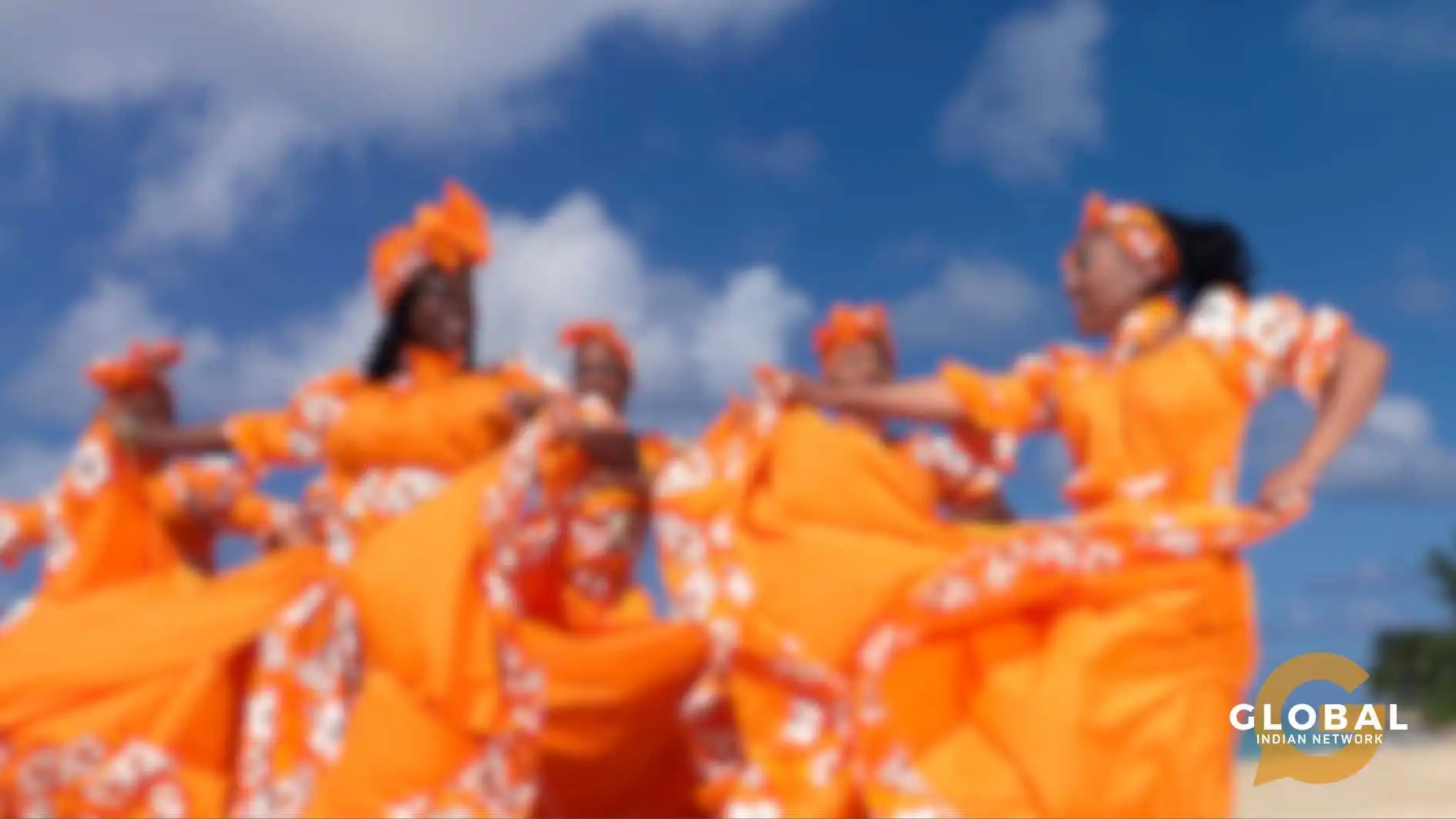Home to a dynamic Indo-Caribbean population whose contributions to the arts, sports, and literature have enriched both local and global cultures, the Caribbean is renowned for its rich diversity. Descendants of Indian indentured laborers who arrived in the 19th and early 20th centuries, Indo-Caribbeans have turned their past into creative energy, leaving a singular cultural heritage deserving of appreciation and acknowledgement.
From the rhythmic beats of chutney and tassa music to the literary works of celebrated authors, their contributions continue to enrich global culture. This heritage is not only a testament to perseverance but also a legacy of innovation, blending ancestral traditions with the distinct Caribbean experience. As Indo-Caribbeans shape contemporary discussions on identity, history, and inclusion, their role in the region deserves broader recognition and appreciation. Their journey—from colonial displacement to cultural prominence—reflects the richness and complexity of Caribbean diversity.
Table of Contents
The Artistic Mosaic: Visual and Performing Arts
Indo-Caribbean art offers a powerful testament to resilience and adaptability. The voyage of indenture, the rich Caribbean environment, and the never-ending negotiation of identity have served as inspiration for painters and performing artists. Shows and events, such as those featured at the Queens Museum’s “Coolitude: An Afternoon of Indo-Caribbean Art and Literature,” highlight how modern artists reinterpret the past and explore ideas of migration, memory, and hybridity. Creating a visual language that is both rooted and revolutionary, their art combines Caribbean color palettes and shapes with Indian designs.
Both music and dance are equally important. Classical Indian dance styles, such as Kathak and Bharatanatyam, have found fresh expression in the Caribbean, sometimes blended with indigenous rhythms and movements. One great example of this mix is chutney music, started by artists like Sundar Popo in Trinidad and Tobago. Reflecting the community’s capacity to innovate while respecting its culture, chutney’s energetic beats and Hindi lyrics, combined with soca and calypso, have become a standard at celebrations and events.
Literary Excellence: From Indenture to Nobel Laureates
One of the foundation blocks of the intellectual and cultural identity of the area is Indo-Caribbean literature. Early works frequently grappled with the trauma of indenture and the quest for a sense of belonging; current writers, in turn, explore complex themes of gender, sexuality, and postcolonial identity. Among internationally acclaimed writers, such as V.S. Naipaul, who was awarded the Man Booker Prize in 1971, the Nobel Prize in Literature in 2001, and the Order of the Trinity Cross of Trinidad and Tobago, the literary canon includes Naipaul’s books, which, although sometimes controversial, have brought Caribbean-Indian stories to a worldwide audience.
Among other well-known authors is Gaiutra Bahadur, whose “Coolie Woman: The Odyssey of Indenture” is a milestone work reclaiming women’s voices from the indenture era. Among those who have pushed the limits of Caribbean literature are David Dabydeen and Shani Mootoo, who investigate metamorphosis, migration, and the intersection of race and gender. Celebrated and analyzed all over, their works highlight the need for Caribbean Literature Day—observed every July 12—for these voices in the worldwide literary scene.

Sporting Triumphs: From Cricket Fields to Olympic Tracks
In the Caribbean, sports are a strong unifier; Indo-Caribbean athletes have been instrumental in the local athletic achievement. The most popular sport in the Caribbean, cricket, has produced legends of Indo-Caribbean origin who have achieved worldwide notoriety. Players such as Shivnarine Chanderpaul and Rohan Kanhai not only shone on the field but also stood as symbols of multicultural pride.
Aside from cricket, Indo-Caribbean athletes have established themselves in boxing, athletics, and football. Their successes are acknowledged in national halls of fame as well as via regional honors like the Caribbean Awards Sports Icons (CASI), which recognize athletic brilliance in several areas. Additionally, sports have provided a means of social mobility, offering scholarships and opportunities for Indo-Caribbean youngsters to shine both internationally and domestically.
Cultural Preservation and Global Impact
While interacting with the bigger Caribbean and world civilizations, the Indo-Caribbean community has worked relentlessly to protect its cultural legacy. Ensuring that the legacy of first-generation immigrants inspires next generations, organizations such as Caribbean Hindustani work to record and advance language, music, dance, and culinary arts. With Caribbean style, festivities like Phagwah (Holi), Diwali, and Eid honor people from all backgrounds and promote intercultural understanding.
Indo-Caribbean artists, writers, and athletes continue to make significant contributions in the diaspora, particularly in North America and Europe. Their successes in areas ranging from education and healthcare to media and business are a testament to their toughness and adaptability. The Indo-Caribbean narrative is one of change, of transforming difficulties into achievement, and of creating a distinct identity spanning countries and civilizations.
Lakshmi Persaud, a Trinidadian novelist, explores Indo-Caribbean identity, migration, and cultural heritage. Ramesh Maharaj, the former Attorney General of Trinidad and Tobago, advocates for human rights and legal reform. Niala Boodhoo, a U.S.-based journalist, covers global economic and social issues. Dr. Devi Persaud, a Canadian-Guyanese medical researcher, contributes to advancements in public health and epidemiology.

Conclusion: A Legacy Worth Celebrating
The achievements of Caribbean–Indian communities in arts, sports, and literature are not just regional milestones—they are contributions to the global tapestry of human creativity and resilience. By celebrating these accomplishments, we honor the journey from indenture to influence and affirm the enduring power of culture to unite, inspire, and uplift. As the world becomes ever more interconnected, the Indo-Caribbean experience offers valuable lessons in adaptation, innovation, and the celebration of diversity.
In today’s world, we hope the duo’s legacy extends to new generations, inspiring future collaborations. Their example of friendship and teamwork serves as a powerful blueprint, demonstrating how unity and shared vision can drive meaningful global connections and contribute to a more interconnected and inclusive world.
The duo could redefine the steps to true globalization. And for the rest of the world to emulate.









